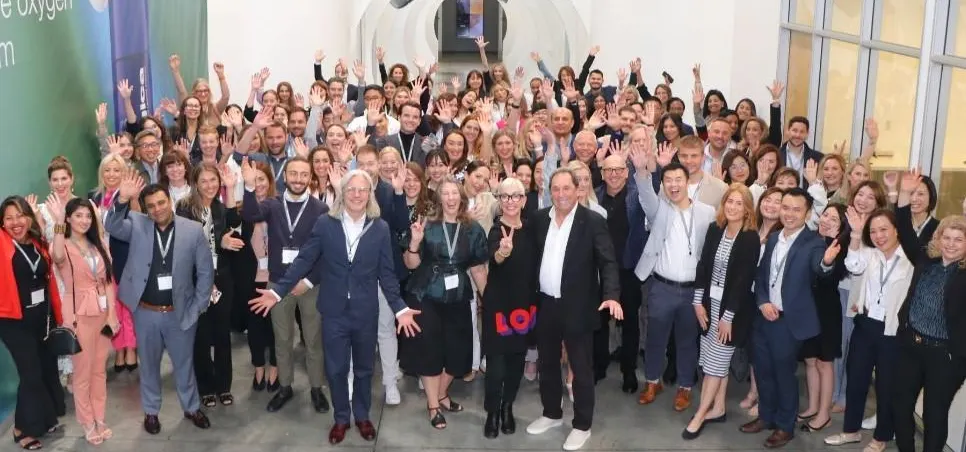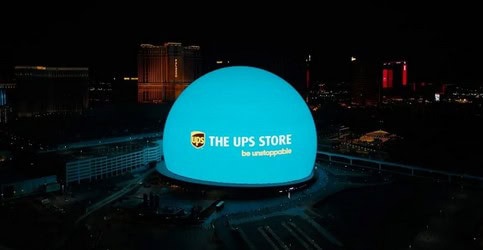Dean DeBiase is a best-selling author and Forbes Contributor reporting on how global leaders and CEOs are rebooting everything from growth, innovation, and technology to talent, culture, competitiveness, and governance across industries and societies.

How C-Suite Leaders Can Make Smarter AI Choices

By Dean DeBiase
February 4th, 2025
Right now, there’s no stopping the global beauty industry. Amid a challenging economic climate and a slew of retail uncertainties over the last couple of years, the industry has been growing — fast. What can CMO’s learn from this dynamic sector? A lot.
The numbers don’t lie: The industry — comprising fragrance, makeup, hair care, and skin care — far surpassed expectations, outperforming other consumer sectors, like apparel. Looking ahead, Statista estimates the global beauty and personal care market is projected to grow to $768 billion by 2029.
So, what is the secret sauce of this sector? Innovation, for one.
Unlike other industries (again, apparel) that tend to rely on more traditional elements such as consistency and branding, beauty breeds modernization and welcomes reboots. From top-of-the-line devices to revolutionary services, the sector is one that rarely holds still. And now more than ever the speed of innovation is what matters. Beauty launches involve comprehensive repositioning multiple times a year compared to every few years in other industries such as cars. But alas, that’s still not the most important point.
In a tech consumed world, consumer experience matters more – and across sectors CX needs to keep up and put up. But how? One brand, Dermalogica, a professional-grade skin-care company acquired by Unilever, provides AI agility lessons C-Suite leaders can use now. Founded by the legendary Jane Wurwand, this is not just another goop brand.

The company is an industry-shaper that trains 100,000 skin therapists annually in advanced tech and services – making it a fitting case study on how to make CX better and enable AI throughout the organization. From a decentralized structure to custom GPTs, the leadership team is approaching AI with purpose. For any company looking to prioritize tech agility, this makes a world of difference.
Personalization A Necessity — Not A Luxury
When it comes to AI, personalization will be the name of the game. Consumers want tailored experiences, formulas, offerings and even packaging – and brands are working overtime to keep up, scale, and put forth the financial investment necessary to meet demand. Is yours?
More and more companies are relying on GenAI, a type of AI that can create new content, as a result, transforming how products are being developed, marketed, evaluated, recommended, purchased, and applied. When I met with Aurelian Lis, Dermalogica’s trailblazing CEO, to unpack what drives him and his organization, he was very direct about why companies may be suffering from AI stupidity. “Many of the big companies are approaching AI in a very wasteful way,” he explains, “big rival consumer companies who collect data but don’t know what they are going to do with the data, are not collecting the right nor relevant consumer data. You have to start the other way round, which is what I want to achieve.”
He’s right. I call it the ‘Big Data – Small Ideas Syndrome’.
Leaders I work with know they must step up now because the stakes are getting higher for their company and their competitors will soon pounce and leap ahead. With many companies leaping, the big-dogs of tech are all over it – from acquiring layers of the AI application stack to building HPC/AI data centers to seize the opportunities in most every industry sector.
Amazon emerged as a major new player, using its technology systems, like machine learning (ML), to power Dermalogica’s e-commerce search and site personalization capabilities. Going forward, the mega-retailer has announced plans to invest in AI infrastructure like augmented reality (AR)-driven virtual try-ons, personalized skin assessments, and ML-based shade matches and recommendations. Google Cloud has partnered with Revieve, a beauty solution platform for retailers and brands (where I’m Chairman), that integrates its Beauty ML with AR and AI recommendations to personalize emotionally resonant consumer experiences.
But it’s not just industry giants that are leading the charge as the beauty sphere looks toward — and acts upon — the future. Dermalogica has long been at the forefront of innovation across all rungs of the company since its launch in 1986. Yep, almost 40 years ago. An early AI adopter, in 2018 they debuted a proprietary AI-powered digital skin analysis tool, called Face Mapping. With 2.5 million downloads (and counting), this tool measures 14 facial skin conditions and uses AI to provide personalized product recommendations. Face Mapping has doubled conversion rates for users who engage with it – yet another reason why this sector and others (like yours) are rushing to the personalization party.
“The real interesting part of GenAI is the functionality that it unleashes, which is then customized to the individual,” says Lis. “Human touch is more exciting than just personalization, especially for a premium brand like ours.”
This category of applied science comes especially appreciated by today’s consumers, who possess an optimism about the U.S. economy, as well as a willingness to splurge. Entrepreneurship is at an all-time high: According to data from the U.S. Department of the Treasury, the U.S. averaged 430,000 new business applications per month in 2024, 50% more than in 2019. I expect that to rise in 2025 and the second half of the decade. Consumers have a hunger for that which is new and innovative, and smart brands and AI platformsshouldn’t just meet their desires but go above and beyond with what seems to be missing most these days – a personal touch.
Tech Agility Creates Competitiveness Cultures
The company, which was founded as a school teaching skin therapists to perform better skin treatments, has spent decades bringing personalized advice from trusted skin therapists into the hands of, well, literally anyone. For Dermalogica, agility creates its competitive advantage, be it via its technology or its organizational structure. With 1,500 employees, the brand relies upon its decentralized organizational structure to enable its nimble ecosystem — and foster a culture of collaboration.

With this more autonomous system, the CEO distributes decision-making authority throughout the entire company, rather than concentrating it at the top. Decisions are made faster, employees feel more valued and have more autonomy; customer-facing teams can respond directly to consumers, and immediately so, while senior leaders can focus on long-term goals and other strategic objectives.
Today, Lis and his team have super charged their processes and even meetings, utilizing custom GPTs for concept development and name-checking, developed by non-technical staff, like copywriters. These tools allow for rapid iteration and decision-making during meetings. The brand’s concept-development GPT is fed with trend reports, market research, and brand values to generate multiple options for new product concepts, while its GPT checks trademarks and regulatory compliance in real-time, enabling faster decision-making.
“Having decentralized technology like this is how you can affect massive change with all our employees,” says Lis. “We see this difference internally in terms of being faster, better, clearer, and it’s also something that the consumer notices.”
These more agile operations allow the company to embrace what it calls an “empowerment mindset,” wherein all members of the brand family feel equally motivated to strive toward innovation in equal measure. This means that they can embrace AI more mindfully, and in a way that works authentically for the business. The company went so far as to develop custom plug-ins for Adobe to translate marketing materials into 30 languages instantaneously without destroying formatting. This initiative has decentralized the translation process, allowing local markets to focus on other tasks.
“We managed to do it pretty quickly,” says Lis. “We used GenAI to teach how to do it.”
Don’t Let Artificial Intelligence Become Artificial Stupidity
Could other organizations look to Dermalogica as a roadmap for how to best approach innovation — and AI, namely — with purpose? I think so – and the proof is in the brand’s success at scale. Dermalogica declined to provide revenue figures but shared that it has accelerated growth through technology, has more than doubled in recent years and continues to gain market share in 88 markets.
For Lis, the future will involve a combination of AI and human interaction to create a more meaningful experience for consumers. This is something missing from most corporate consumer categories – human touch. Companies would be well served to harness the best of emotive-driven GenAI with touches that signal a real human cares.
“Artificial Intelligence becomes Artificial Stupidity when machine learning delivers sub-automation,” says Lis. “The idea that data is the world’s gold is a wasteful approach. It boils down to regurgitation without human creativity. Too many are mining for data with the idea that they will develop something great. That’s like beginning to build a palace, without any idea what the structure is for.”
In addition to understanding Small Language Models, Lis insists organizations must listen to their front-line employees to source innovative ideas and then empower middle management to pioneer the best AI-driven solutions while being able to answer succinctly. Sounds simple, right? Well, let me ask you: what magic are you looking to unleash with AI and your people?






